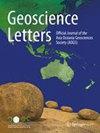Rethinking our world: a perspective on a cleaner globe emerging from reduced anthropogenic activities
IF 4.3
3区 地球科学
Q1 GEOSCIENCES, MULTIDISCIPLINARY
引用次数: 0
Abstract
Stringent measures, such as lockdowns, were implemented to curb the virus's spread, leading to reduced pollution levels and environmental improvements at various geographic scales, from cities to regions and nations. Such positive effects have been found and reported for regional scales, but not for a global scale till nowadays. This study aims to fill the gap by uncovering the modifications of global spatiotemporal eco-environmental vulnerability patterns between pre-pandemic (2016) and amid-pandemic (2020) periods. By analyzing various factors influencing the eco-environmental health or geo-health, such as human activities, climate change, and ecological dynamics, we seek to understand the intricate relationships and dynamics within these influential factors. We examined six categories of environmental vulnerability, which encompassed socioeconomics, land resources, natural hazards, hydrometeorology, and topography, using a five-dimensional stressor framework. Our analysis revealed a significant decrease in vulnerability levels across all categories, except for the very low level increased by 78.5% globally. These findings emphasize the detrimental impact of human activities on the global environment. They underscore the urgency of implementing spatial management strategies that prioritize sustainable geo-health development and foster a more resilient Earth.反思我们的世界:从减少人为活动的角度看更清洁的地球
为遏制病毒传播,采取了封锁等严厉措施,从而降低了污染水平,改善了从城市到地区和国家等不同地理范围的环境。这种积极影响在区域范围内已有发现和报道,但在全球范围内至今尚未发现。本研究旨在填补这一空白,揭示大流行前(2016 年)和大流行中(2020 年)期间全球时空生态环境脆弱性模式的变化。通过分析影响生态环境健康或地理健康的各种因素,如人类活动、气候变化和生态动态,我们试图了解这些影响因素之间错综复杂的关系和动态。我们利用五维压力源框架研究了六类环境脆弱性,包括社会经济、土地资源、自然灾害、水文气象和地形。我们的分析表明,除了极低的脆弱性水平在全球范围内增加了 78.5%之外,所有类别的脆弱性水平都大幅下降。这些发现强调了人类活动对全球环境的有害影响。它们强调了实施空间管理战略的紧迫性,这些战略应优先考虑可持续的地理健康发展,并促进更具复原力的地球。
本文章由计算机程序翻译,如有差异,请以英文原文为准。
求助全文
约1分钟内获得全文
求助全文
来源期刊

Geoscience Letters
Earth and Planetary Sciences-General Earth and Planetary Sciences
CiteScore
4.90
自引率
2.50%
发文量
42
审稿时长
25 weeks
期刊介绍:
Geoscience Letters is the official journal of the Asia Oceania Geosciences Society, and a fully open access journal published under the SpringerOpen brand. The journal publishes original, innovative and timely research letter articles and concise reviews on studies of the Earth and its environment, the planetary and space sciences. Contributions reflect the eight scientific sections of the AOGS: Atmospheric Sciences, Biogeosciences, Hydrological Sciences, Interdisciplinary Geosciences, Ocean Sciences, Planetary Sciences, Solar and Terrestrial Sciences, and Solid Earth Sciences. Geoscience Letters focuses on cutting-edge fundamental and applied research in the broad field of the geosciences, including the applications of geoscience research to societal problems. This journal is Open Access, providing rapid electronic publication of high-quality, peer-reviewed scientific contributions.
 求助内容:
求助内容: 应助结果提醒方式:
应助结果提醒方式:


